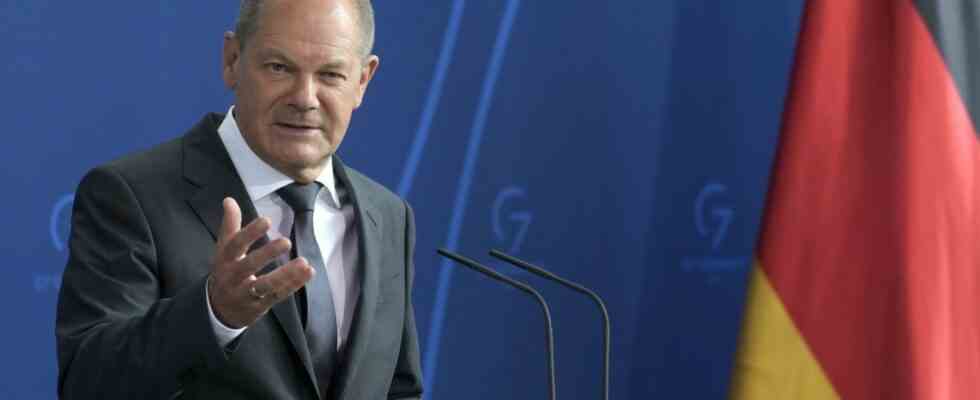What burdens are the Germans facing right now? Many electricity customers receive an initial reply in the mail. “Termination of your electricity purchase contract,” writes the provider Switzerland Strom, for example, to customers in Germany. The war in Ukraine and our own high costs prevented “the continuation of our contractual relationship,” it says, with the “request for understanding.” However, this should be limited. Because if you have to sign a new contract now, you pay at least 50 percent more. Families incur additional costs of hundreds of euros every year. For gas customers, prices can rise even more drastically in autumn.
Chancellor Olaf Scholz (SPD) had promised the Germans further relief on Friday with the words “You’ll never walk alone”. Above all, those in need should receive additional help, the housing benefit should be extended to more recipients and a protective shield for defaulting tenants, electricity or gas customers should be created. In addition, trade unions, politicians and business associations want to discuss another aid package in mid-September. But hardly any of this is likely to take effect before January 1st. Too late, it is now said in the camp of the social associations.
On Sunday, the joint general association called for an immediate reaction from the federal government. “We simply cannot afford to wait months before making decisions,” said General Manager Ulrich Schneider Süddeutsche Zeitung. “The prices for electricity and gas are rising now and in the next few weeks. At the same time, relief such as the tank discount expired at the end of August. We have to relieve people quickly – and not just on January 1st,” demanded the head of the association. “The federal government’s current schedule completely ignores the dynamic and dramatic nature of the situation,” warned Schneider.
The wishes of the parties differ widely
Due to multiple price increases, the association is demanding an immediate and unbureaucratic increase in basic security by 200 euros a month to 649 euros. This is the only way to secure the subsistence level, said Schneider. The exact requirement must then be determined by the turn of the year and paid out from January, which, according to the association, could be somewhat higher. Scholz had also announced a reform of basic security by the end of the year. However, the government is still arguing about the future amount. The FDP has so far rejected an increase beyond inflation compensation.
It’s not the only point of contention in the discharges. The wishes of the parties have so far diverged widely. A billion-dollar game of political prestige projects has begun. While the FDP wants to relieve drivers and reduce taxes with a higher commuter allowance, the Greens want a follow-up project for the nine-euro ticket in local transport, higher child benefits and a reduction in VAT on fruit and vegetables.
But not everything can be realized. The federal budget does not provide additional billions in expenditure. And Finance Minister Christian Lindner announced at the weekend that he would stick to the debt brake despite the relief planned for early next year. “We will and will have to operate within the framework prescribed by the constitution,” said the FDP leader. “Some are actually speculating that there will be an exception to the debt brake again.” But that is impossible.
Labor Minister Hubertus Heil had previously made the planned return to the debt brake from 2023 subject to the economic situation. The debt brake, which has been enshrined in the Basic Law since 2011, aims to ensure that federal and state budgets get by without income from loans. For the federal government, net borrowing is limited to 0.35 percent of gross domestic product. However, the Bundestag can only suspend the debt brake in “extraordinary emergency situations”, such as in 2021 and 2022 due to the Corona crisis.

